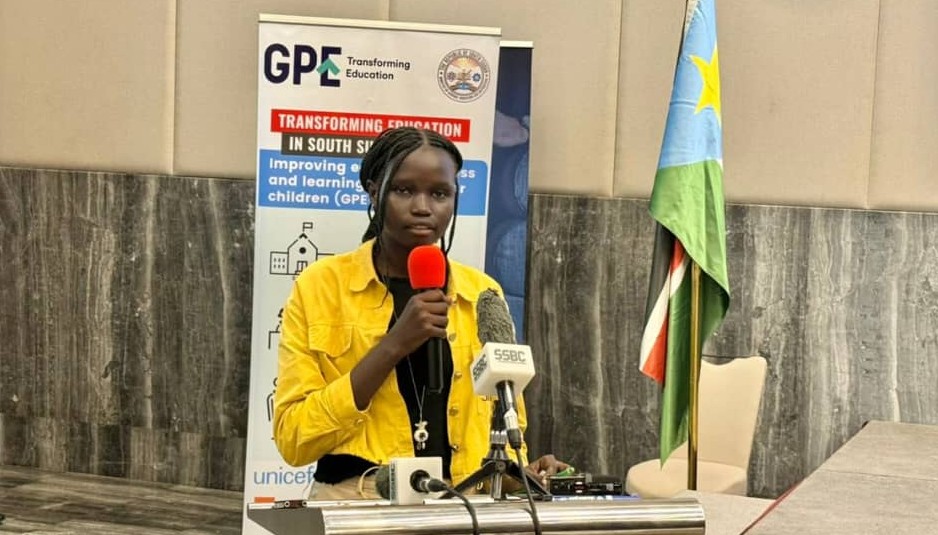
South Sudan’s education partners has expanded its inclusive education program, reaching more than 587,000 children across the country in 2024 alone.
The initiative follows a unified, government-led approach and is funded by the Global Partnership for Education through three key grants. UNICEF and a consortium led by Save the Children act as the main grant agents.
Dr. Kuyok Abol Kuyok, Minister of General Education and Instruction, emphasized the government’s commitment to ensuring every child has access to quality education.
“This funding from GPE will provide life-saving educational opportunities for hundreds of thousands of crisis-affected girls and boys across the country. We call on global leaders to scale up support to sustain this momentum,” he said.
The program comes at a critical time. More than 2.8 million school-age children, over 70%, are currently out of school in South Sudan.
The initiative aims to directly benefit over 300,000 learners and indirectly reach another 600,000 across 20 counties, including high-need areas such as Jonglei, Lakes, and the Greater Pibor Administrative Area (GPAA).
Under the System Transformation Grant, 250,000 children will be supported, including 3,000 children with disabilities and 1,120 from pastoralist communities.
Half of all beneficiaries are girls. Additionally, 7,300 teachers will receive training and teaching resources. The Girls’ Education Accelerator will support 33,000 girls, along with 2,000 children with disabilities, 29,500 boys, and 1,650 teachers through Accelerated Learning Programs and Comprehensive Sexuality Education.
The System Capacity Grant will focus on strengthening national education planning, policy development, and service delivery.
Christopher Nyamandi, Save the Children’s Country Director, described the initiative as an investment in both children’s futures and the country’s long-term peace and prosperity.
“With GPE support, we will reach the most excluded children, ensuring safe, inclusive access to quality education, even in the face of climate shocks and conflict,” he said.
UNICEF Representative ai, Obia Achieng added, “Boys, and especially girls, have been shortchanged for too long, with no clear path to education.
As Nelson Mandela said, ‘Education is the most powerful weapon you can use to change the world.’ UNICEF is proud to help realize that change for South Sudan’s children.”
UNICEF’s inclusive education approach ensures that all children, including girls, children with disabilities, and those in vulnerable situations, are protected and supported.
The program is integrated with Child Protection, WASH, Health, Nutrition, and Social Protection to promote the overall well-being of every child.
In 2024, UNICEF enabled 195,261 children, 47% of them girls, to access pre-primary and primary education. Another 392,315 crisis-affected children, also 47% girls, received emergency education services.
Teachers, supervisors, inspectors, and examiners also benefited from targeted training and capacity-building support.
This flagship education initiative aligns with South Sudan’s national education strategy and the Sustainable Development Goals, particularly SDG 4, which promotes inclusive and equitable quality education for all. It also reflects GPE’s core principles of gender equality, national ownership, and system-wide transformation.
As South Sudan continues to face the challenges of conflict, climate change, and displacement, this education program offers a beacon of hope, positioning learning as the foundation for resilience, recovery, and a more peaceful future.

